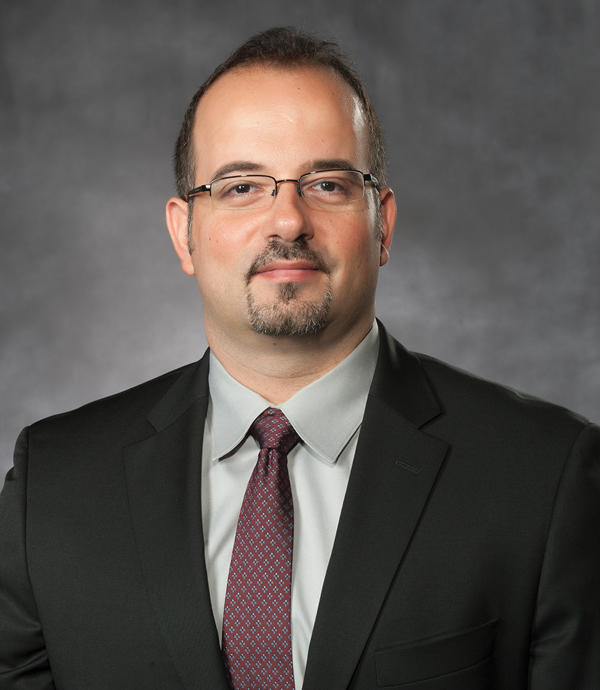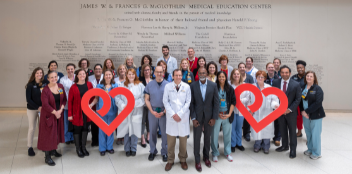Heart Failure Drug Explored
One recent VCU preclinical study exploring a rising heart failure drug is gaining national attention. The study, published in November in the Journal of the American College of Cardiology, provides crucial evidence of the efficacy of the drug sacubitril/valsartan (LCZ696) in preventing heart failure following an acute myocardial infarction.
 Dr. Fadi Salloum
Dr. Fadi Salloum
In an invited editorial, Drs. David Lefer and Thomas Sharp III describe it as “a powerful new study…that provides important new insights into LCZ696 and cardioprotection.” The VCU study is the first to explore the drug, also known as sac/val, in a preclinical model following a heart attack. Sac/val is a fairly new drug, which one recent clinical trial has shown reduces heart failure hospitalization and risk of cardiovascular death by 20% when compared to longstanding treatment with ACE inhibitors.
The VCU study comes at an important time. “There is a paucity of information regarding the precise mechanisms by which LCZ696 improves outcomes in patients with HF,” say Lefer and Sharp. Healthcare providers have been resistant to adopt it as the new gold standard for therapy, due to the “widespread skepticism that a single clinical trial should undermine more than 30 years of clinical data” for ACE inhibitors.
The new VCU trial may provide a boost. According to the senior and corresponding author, Dr. Fadi Salloum, “The goals of this study were multifold. The first was to provide a better understanding of the impact of sac/val treatment on already
established heart failure and to test whether treatment would attenuate further adverse cardiac remodeling by mitigating scar size and improving cardiac function. The second was to test whether sac/val treatment at the time of a heart attack would attenuate the development of adverse cardiac remodeling and prevent heart failure compared to val alone or placebo.”
Among its findings, the VCU investigators discovered that the early and continuous use of either val alone, or, more impressively, sac/val, led to “remarkable” prevention of heart failure following a heart attack. Also, sac/val “blunted and reversed cardiac decline and adverse remodeling when initiated as a `rescue’ treatment” even after left ventricular ejection fraction was less than 40% and significantly reduced scarring following a heart attack.
“Reducing scar size is very important because it may reflect preservation of viable heart muscle, which ultimately translates into better function,” said Salloum. The trial may provide supporting evidence for the ongoing PARADISE-MI clinical trial, which is exploring the use of sac/val in reducing heart failure events in patients who have experienced a heart attack.
The article was featured in MEDPAGE TODAY and the American College of Cardiology News Digest.
Wright Center Receives $21.5 Million NIH Award
In May 2018, the C. Kenneth and Dianne Wright Center for Clinical and Translational Research received a five-year National Institutes of Health (NIH) Clinical and Translational Science Award totaling $21.5 million. The award is the largest in VCU history. The center had previously received $20 million from the NIH, in its inaugural CTSA program in 2010, which supported the creation of 50 research hubs across the U.S. VCU is the only academic institution in Virginia to have received the prestigious award.
The purpose of the network of Centers for Clinical and Translational Research (CCTR) is to accelerate exciting research and make it more quickly available to patients. VCU CCTR provides grants of up to $130,000 for promising explorations.
Back to Spring-2019

